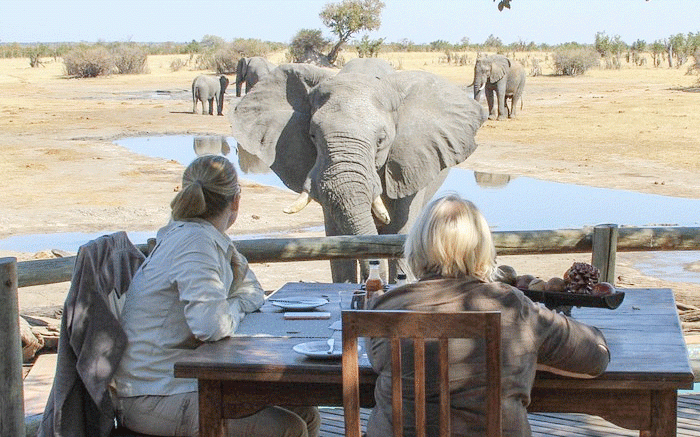
ZIMBABWE’S tourism industry is underinvested in accommodation and conference facilities, which raises concerns that the sector may not be able to handle the massive number of visitors, according to Tourism minister Mangaliso Ndhlovu.
“With the sector on an accelerated recovery from the devastating Covid-19 pandemic, now is the best time to invest in this industry of the future,” the minister told Standardbusiness in an interview.
“This also comes against the background that Zimbabwe is underinvested, especially in accommodation, conferencing facilities, entertainment, theme parks and so on, all of which are critical to enhancing the competitiveness of destination Zimbabwe.
“Just to cite specifics, currently as a nation we are sitting on less than 10 000 rooms and very limited conferencing capacity.”
The battle to rebuild Zimbabwe’s tourism industry has swung to attracting a powerful network of international airlines — an important factor for foreign tourists.
Decisions by governments at the height of the Covid-19 scourge to ground airlines and restrict international travel pushed foreign tourist arrivals into Zimbabwe down by 90% in 2020 — the biggest plunge in 40 years — before more write-downs shook the market last year.
Tourism sector, which has become a low hanging fruit, needs about US$3 billion in investment, according to the Zimbabwe Investment and Development Agency (Zida).
The tourism minister said they are currently reaching out to investors and financial players to tap into the underinvested areas of the sector.
- Tourism firms cash in on tax rebates
- In-depth Interview: 'Local tourism on great rebound'
- 'Zim needs to revamp tourism infrastructure'
- Letters: Policy inconsistencies driving out, frustrating foreign investment
Keep Reading
“This is not good for our destination, hence, the concerted efforts we’re making to continually reach out to project promoters, investors, financiers, operators and developers to interact, network and engage,” he told Standardbusiness.
According to Ndhlovu, Zimbabwe remains one of the most sought-after destinations in Africa, despite the bloodbath that beset players in 2020 when arrivals slowed by 90%, during Covid-19-induced lockdowns.
The accommodation sector saw resurgence in occupancy with city hotels showing first signs of recovery from the first quarter of 2022. Yearly, occupancy of 44% was 2% below 2016 levels indicating recovery is on course for the sector.
However, under National Development Strategy 1, tourism has been identified as one of the priority economic sectors that have the potential to immensely contribute to national economic growth and development.
According to the blueprint, the sector should contribute US$600 million to total capital investments by 2025 while at the same time; the industry economy should be worth US$5 billion.
Government has put in place initiatives meant to attract investors and to boost the performance of the sector.
These include the extension of the duty exemption facility on tourism capital goods.










